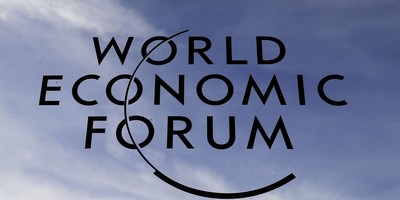Everybody complains about taxes and government spending, but nobody does anything about them.
Perhaps that’s because whenever they do something, they’re often labeled as racists, right-wing extremists or worse.
That’s what happened when various news organizations covered the April 15 “Tea Parties” across the country; the media clearly did not know what to make of such a robust turnout for the loosely organized events, and wound up dismissing or belittling it.

The Tea Party movement may or may not go forward from the tax-day protests – but any time the media or politicians dismiss a grassroots effort, they do so at great peril.
In this case, people attending those Tea Party events were consumers and voters, with a decent number of registered Democrats and independents sprinkled in.
Pennsylvania state Rep. Josh Shapiro, a Philly-area Democrat who is set to run for the U.S. Senate seat held by Republican Arlen Specter, was not keen on the rhetoric at some of the events, but he is wise enough not to ignore the real concerns of Americans who are angry.
Elected officials “should be trying to figure out where that anger is coming from and address it, rather than trying to find ways to dismiss it,” Shapiro says.
Whether or not you agree with the protesters, our country allows dissent because we believe fundamentally in free speech.
“I regularly remind my students that you know you are living in a good, strong and healthy democracy when you are offended on a daily basis,” says Lara Brown, a political scientist at Villanova University.
She disagrees “profoundly with President Obama’s chief strategist, David Axelrod, that the protestors were displaying an ‘unhealthy’ attitude. The only unhealthy – undemocratic – attitude was his.”
Recommended
Purdue political-science professor Bert Rockman, on the other hand, was perfectly satisfied with the media coverage and less than impressed by the movement itself.
“But people often like the ‘goods’ (government) produces, they just don't want to pay for them,” Rockman says, calling that the prevailing attitude at the Tea Parties.
“The least the Tea Party-goers could have done was not pollute the common-resource rivers into which they threw their tea, and if they were really against waste they would have consumed the tea or given it to charity,” he adds.
People look at last fall’s financial meltdown and wonder what happened to all of that “prosperity” that they thought the government was helping to orchestrate. It makes them wonder if former Federal Reserve chairman Alan Greenspan really was a financial genius. And what about the federal debt, which doubled under George Bush?
Obama's campaign promised change and hope, yet so far his presidency mostly has been about ramping-up government programs and spending – not necessarily the change people thought they would get.
“In short, I think people are just feeling disillusioned and duped by politicians who keep promising solutions and delivering more problems,” Villanova’s Brown says.
She thinks politicians and the media are behaving arrogantly by dismissing what is going on.
What people should remember is what President Bill Clinton said at the beginning of his 1995 State of the Union address. He made a joke about also having been elected to the presidency on a sentiment for “change” – as he looked directly at Republican House Speaker Newt Gingrich, who had just won a majority in Congress thanks to his “Republican Revolution.”
That was then, and this is now. What, if anything, is next?
“That is the unanswered question,” says Michael Reagan, a syndicated talk-radio host and son of President Ronald Reagan.
“If what people did on April 15 is used as an end-point, then people lose,” he says. “But if the movement and energy continue, then that is something that Washington should be concerned about.”
That means everyone in Washington, not just Democrats, he adds.
Our society moves forward only when it experiences setbacks; oddly, those setbacks insure our perseverance. And the United States is a democracy that flourishes on free speech and the right to gather in protest.
Dismissing today’s anti-tax protests is a little like those dismissals of Ross Perot when he ran for president in 1992: His anti-tax, anti-big-government message – not Bill Clinton – is what really beat George H.W. Bush.

























Join the conversation as a VIP Member